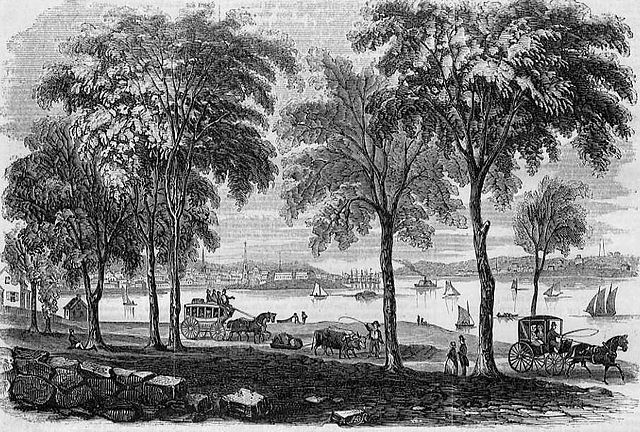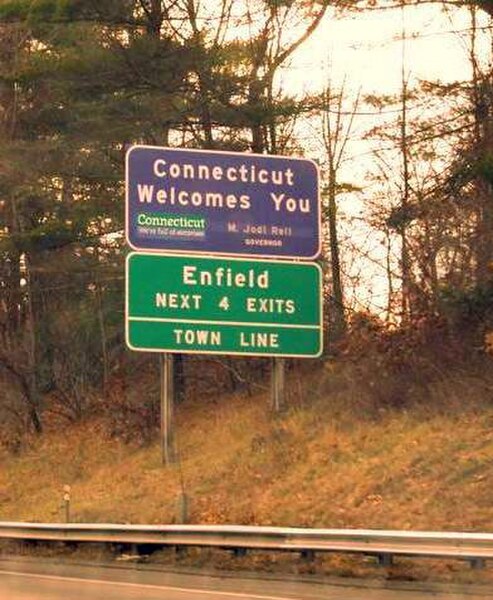The Pequot are a Native American people of Connecticut. The modern Pequot are members of the federally recognized Mashantucket Pequot Tribe, four other state-recognized groups in Connecticut including the Eastern Pequot Tribal Nation, or the Brothertown Indians of Wisconsin. They historically spoke Pequot, a dialect of the Mohegan-Pequot language, which became extinct by the early 20th century. Some tribal members are undertaking revival efforts.
Pequot Museum Exhibit showing Mashantucket Pequot warrior
Pequot basket, c. 1840–60
Cover of 1663 Bible translated into the Wampanoag language
Connecticut is the southernmost state in the New England region of the Northeastern United States. It borders Rhode Island to the east, Massachusetts to the north, New York to the west, and Long Island Sound to the south. Its capital is Hartford, and its most populous city is Bridgeport. Connecticut lies between the major hubs of New York City and Boston along the Northeast Corridor, where the New York metropolitan area, which includes six of Connecticut's seven largest cities, extends well into the southwestern part of the state. Connecticut is the third-smallest state by area after Rhode Island and Delaware, and the 29th most populous with slightly more than 3.6 million residents as of 2020, ranking it fourth among the most densely populated U.S. states.
On April 26, 1935, the U.S. Post Office issued a postage stamp commemorating the 300th anniversary of the initial settlement of the Connecticut colony.
View of New London in 1854
A welcome sign on I-91 in Enfield.
The Pearl Harbor Memorial Bridge, locally known as the Q Bridge, carries ten lanes over the Quinnipiac River in New Haven, along the Connecticut Turnpike.







